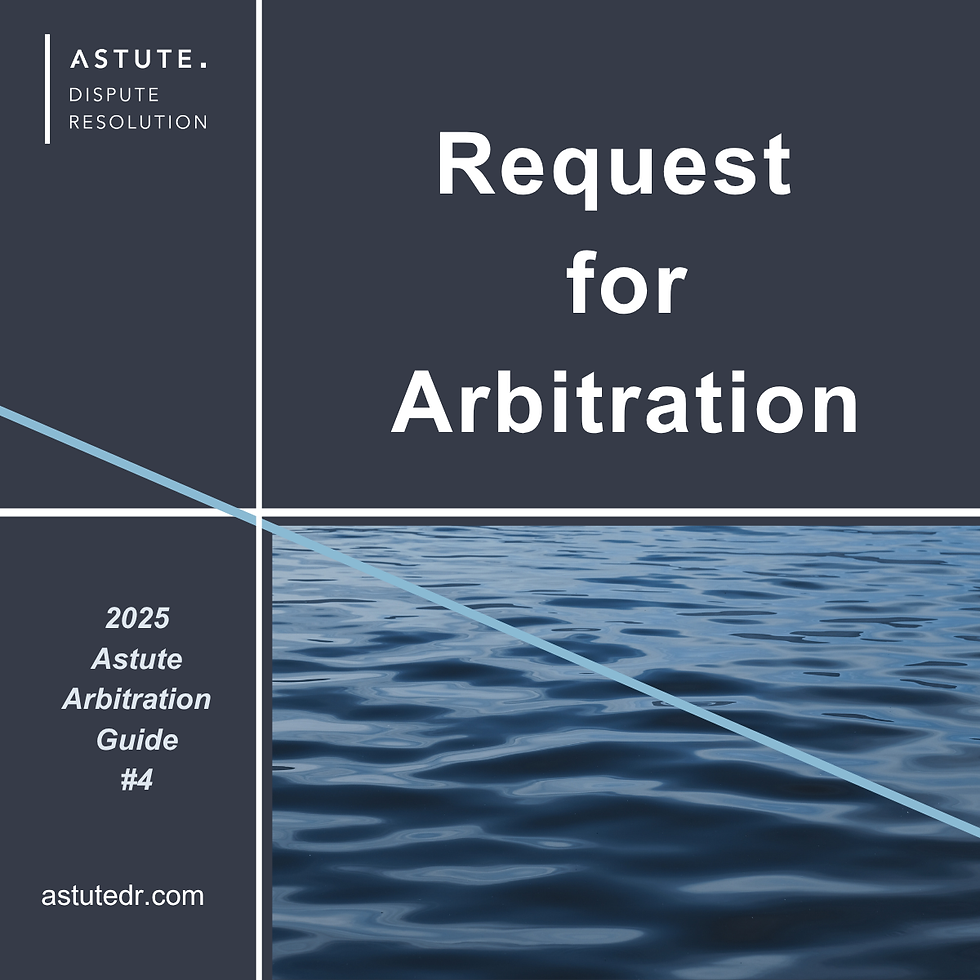Arbitration and Social Media
- Lam NGUYEN
- Feb 29, 2024
- 2 min read
Updated: Nov 22, 2024

On 22 February 2024, Astute Dispute Resolution lawyer Nhu-Hoang Tran Thang participated in a panel on “arbitration in the era of social media” at the International Bar Association’s Arb40 Symposium in Singapore.
She specifically addressed the impact of the Swiss Federal Tribunal’s decision 4A_318/2020 of 22 December 2020 in the Sun Yang case (for a summary, see here and for the full text of the decision see here), in which a decision of the Court of Arbitration for Sport was set aside based on tweets by the arbitral tribunal’s president.
It was followed up by the recent disqualification of an arbitrator by the International Court of Arbitration of the International Chamber of Commerce in Paris that seemed to have involved the same tension between an arbitrator’s freedom of expression and his or her duty of impartiality (see Global Arbitration Review’s report here).
These cases raise critical questions about the due diligence required for arbitrators' social media activities and the potential for challenges based on online behavior and connections. The multiple situations where social media use by arbitrators, counsel, and parties could lead to conflict of interest, confidentiality issues, and successful arbitrator challenges were discussed.
Panelists Murphy Mok and David Isidore Tan presented and commented on the Singapore Court of Appeal’s decision [2023]SGCA(I) 4 of 2023 in the India v Deutsche Telekom case (see the decision here and an analysis by David Isidore Tan for the Kluwer Arbitration Blog here). In that case, confidentiality orders were refused to India in relation to arbitration enforcement proceedings after substantial information on the arbitral award, including through LinkedIN posts by India’s lawyers, was released to the public domain.
The discussion illuminated specific questions about arbitration and social media. Yet, the broader implications, including the daily social media interactions of arbitration professionals and the arbitrators' duty of disclosure, remain areas for continued debate. For instance, the question of whether LinkedIn connections should be disclosed to avoid doubts about an arbitrator's impartiality was raised. Additionally, the appropriate online conduct during proceedings, such as the propriety of an arbitrator liking a post by a counsel involved in a case, was discussed.
While there are instances of arbitrators being challenged over undisclosed LinkedIn connections, these are often seen as tactical. The prevailing view is that online relationships should be assessed similarly to offline relationships. This is reflected in the New York Bar Association’s Guidance Note on Arbitration and Social Media (available here), and this aligns with the conclusions of the participants to the Swiss Arbitration Association’s Townhall 2023, who mentioned amongst relevant criteria the intensity of the social media activity, the frequency of the interactions and the type of social media platform, and emphasized the overall need to exercise self-restraint (see the full report here).



